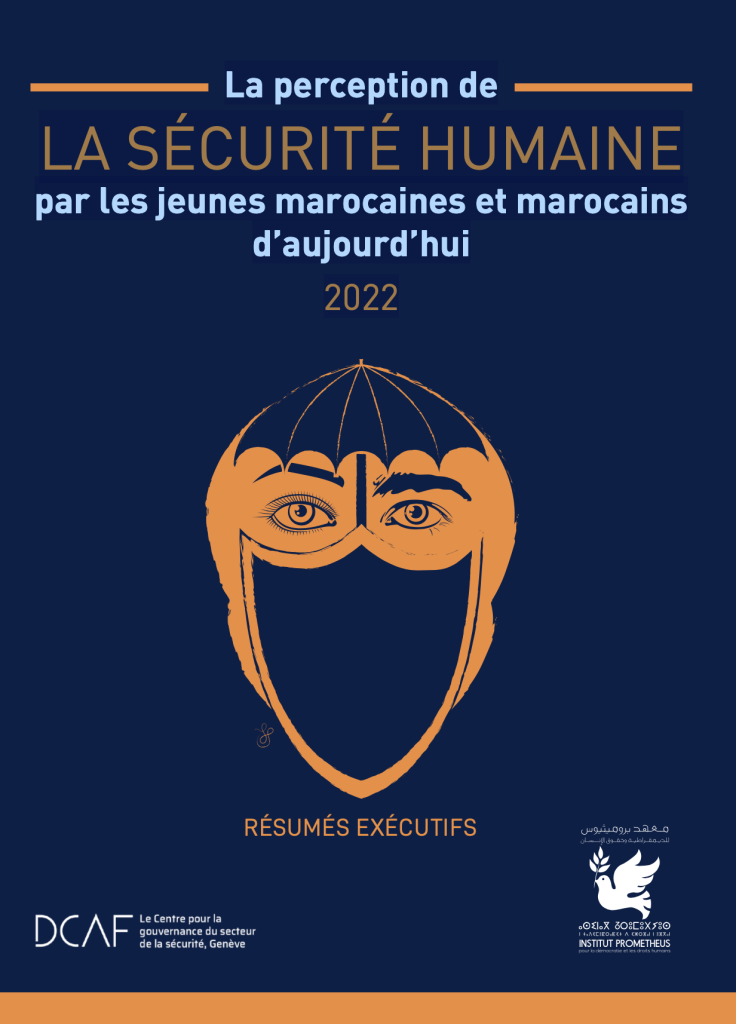
This study provides an overview of young people's views on various aspects of human security from fear, risk and need. It is based on the reference framework stipulated in the Human Development Report published by the UNDP in 1994 and adopted by DCAF. The objective of the study is thus to measure the feeling of security and/or insecurity among young Moroccan men and women by identifying their needs, their vulnerabilities, their capacities, and their root causes.
In this perspective, the study focused on five dimensions of human security: family, economy, health, public space and politics. The method The field survey adopted a mixed, inclusive and participatory investigation approach combining
three methods: questionnaire, focus groups and life story.
The number of young people (18 to 34 years old) who answered the questionnaire is 1,239 with extremely varied profiles: among them 83% were under 30 years old, 47% were young women, and 2 respondents not identified in relation to the category of sex. Two objective criteria formed the basis of the sample: (1) the first criterion refers to geographical targeting which guided the choice towards five urban localities. The latter recorded the strongest expressions of youth engagement during local social protests experienced by Morocco between 2008 and 2018 (Sidi Ifni, Khouribga, Al Hoceima, Jerada, and Zagora). The city of Marrakech was added to this sample for considerations relating to the impact of the COVID-19 health crisis on this tourist territory; and (2) the rebalancing of the survey plan based on the reconciliation of the structure of the sample with the demographic weight of young people in the general population and housing census (RGPH) of 2014 at the level of survey areas.
Eight regional focus groups were organized with an average of 10 to 12 young participants including 41% young women. The four major regional urban basins targeted in the survey are Casablanca-Rabat, Marrakech-Safi, Tangier-Tetouane, and Fez-Meknes.
The life story or personal story is based on a qualitative methodology centered on 4 young people (half of whom are young women) among the participants in the eight regional focus groups.
The 124 questions asked to young people relate to their concerns and their life in
daily.
The survey thus paid particular attention to many aspects of human security in the daily lives of young people. She endeavored to answer the following question: What does it mean: To be a young person and to live in safety in Morocco today?


